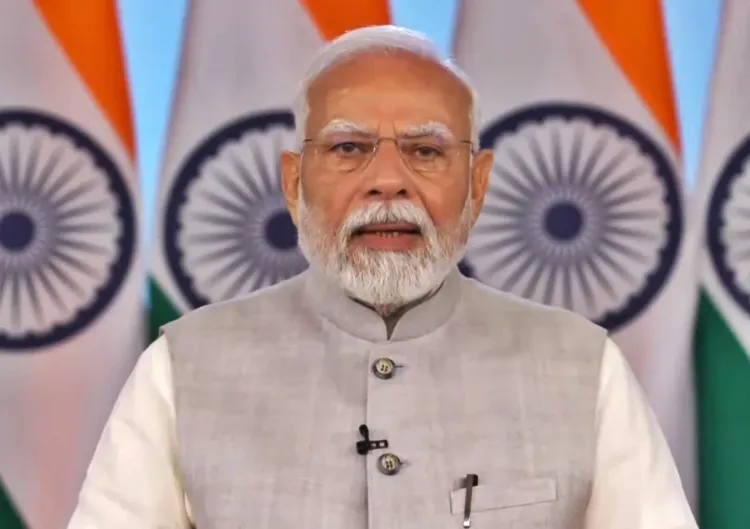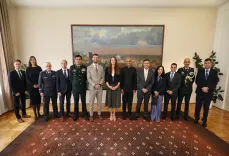Is India’s Space Journey Rooted in ‘Vasudhaiva Kutumbakam’?

Synopsis
Key Takeaways
- India's space journey is framed by collaborative growth.
- ‘Vasudhaiva Kutumbakam’ inspires shared aspirations.
- Significant milestones highlight India's achievements in space.
- Future missions aim for human spaceflight and lunar exploration.
- Space initiatives enhance governance and improve livelihoods.
New Delhi, May 7 (NationPress) Prime Minister Narendra Modi emphasized that India’s space journey is not about competing with others, but is anchored in the principle of ‘Vasudhaiva Kutumbakam, meaning the world is one family.
In the context of a heightened race in space exploration by global powers, PM Modi called for a unified approach to growth through space endeavors while addressing the Global Conference on Space Exploration (GLEX 2025) via a video message.
“India’s space journey is not about racing others. It is about ascending together. We all share a mutual goal to explore space for the benefit of humanity,” PM Modi articulated.
He stressed that India’s vision for space is deeply rooted in the ancient wisdom of ‘Vasudhaiva Kutumbakam’. “We seek not only our own advancement but also aim to enrich global knowledge, tackle shared challenges, and inspire future generations,” he highlighted.
Praising India’s space journey as “extraordinary”, he noted it signifies a “declaration of curiosity, courage, and collective advancement” rather than merely a “destination”.
“From the launch of a modest rocket in 1963 to becoming the first nation to land near the Moon’s South Pole, our journey is truly remarkable,” the Prime Minister remarked, adding that beyond mere “payloads”, the rockets carry “the aspirations of 1.4 billion Indians”.
PM Modi highlighted significant achievements such as the successful Mars Mission, Chandrayaan-1, Chandrayaan-2, and Chandrayaan-3, alongside advancements like cryogenic engines and satellite docking, calling them “pivotal scientific milestones”.
“We persist in advancing with renewed confidence, pushing the frontiers of scientific exploration,” he stated.
He also unveiled future missions, including a human spaceflight initiative ‘Gaganyaan’ this year, a collaborative ISRO-NASA project at the International Space Station, plans for the Indian Space Station by 2035, and a lunar mission by 2040.
“Mars and Venus are also targets on our radar,” the PM mentioned.
Beyond mere exploration, the Prime Minister noted that India’s space journey is about “empowerment”.
“It empowers governance, enhances livelihoods, and motivates generations. From alerts for fishermen to the GatiShakti platform, and ensuring railway safety to weather forecasting, our satellites safeguard the welfare of every Indian,” he asserted.
The PM called for the need to “write a new chapter in space exploration, driven by science and shared aspirations for a brighter future”.
GLEX 2025 aims to foster the exchange of programmatic, technical, and policy information, along with collaborative solutions, challenges, lessons learned, and pathways forward among nations eager to explore space.








